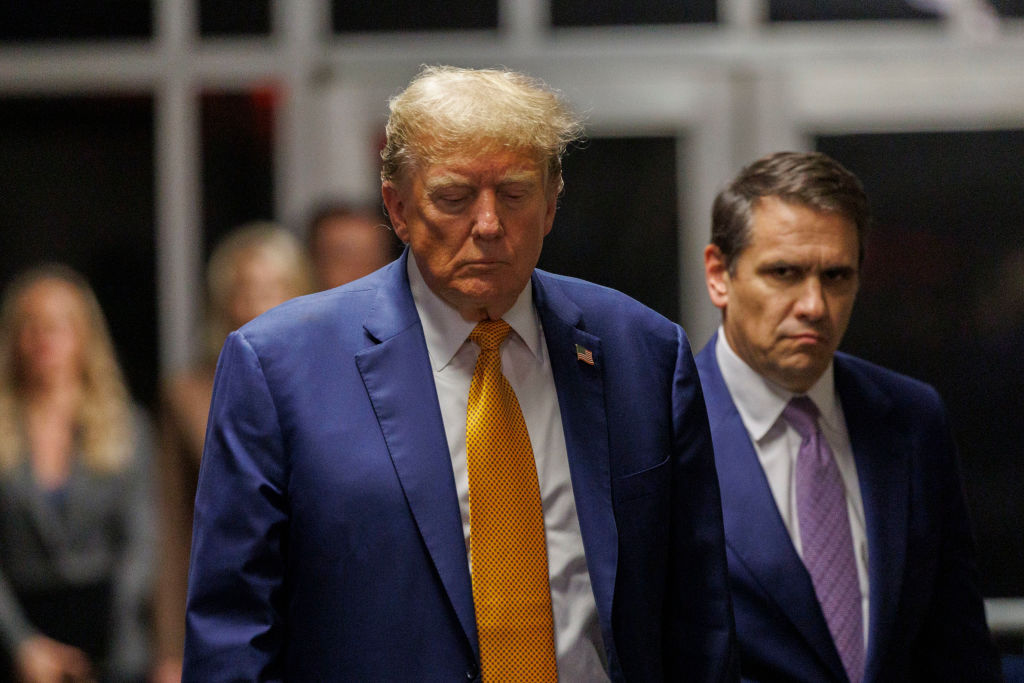Bitcoin Exchange-Traded Funds (ETFs) Launch in the US: Two Potential Risks, Problems That May Arise
According to Coinbase experts, the introduction of spot Bitcoin exchange-traded funds (ETFs) in the US may result in a lack of "regulated" Bitcoin and harm a well-liked trading method.
Less than three weeks remain until spot Bitcoin ETFs might potentially be approved, and many people think trading could start soon after. However, Greg Sutton, senior sales trader, and David Duong, head of institutional research at Coinbase, warned that once they start trading, two major hazards may surface.

(Photo : by STEFANO RELLANDINI/AFP via Getty Images)
According to Coinbase experts, the introduction of spot Bitcoin exchange-traded funds (ETFs) in the US may result in a lack of "regulated" Bitcoin and harm a well-liked trading method.
Duong and Sutton mentioned that issuers would need to purchase enough Bitcoin to retain in their ETFs, which might be a problem for institutions sourcing BTC, in a podcast that was released on December 19.
A spot Bitcoin ETF was expected to be the most successful ETF product launch ever, according to venture capital firm Bitwise.
Duong acknowledged that, in comparison to low inflows, this is a positive thing to have, but he stated that going ahead, it was important to keep the source risk in mind.
Read Also: Grab These Stocks Before 2023 Closes, Say Analysts
Implications for the Basis Trade amid Pending Spot Bitcoin ETF Approvals
A second danger, according to Sutton, is associated with one of the most well-liked institutional trading techniques, referred to as the "basis trade" - this involves profiting on the discrepancy between the spot price of Bitcoin and the cost of BTC futures contracts.
According to statistics from Velo, the potential profit on the basis trade has increased by as much as 20% over the previous two weeks due to the significant increase in activity on both spot Bitcoin and futures contracts.
However, the basis will narrow and the trade will be much less profitable if institutional investors have more direct exposure to Bitcoin through a spot ETF product.
The Securities and Exchange Commission (SEC) is presently accepting 13 applications for a spot Bitcoin ETF. It is widely believed that one or more of these products may receive clearance by January 10 at the latest, with Bloomberg ETF analysts James Seyffart and Eric Balchunas placing the likelihood at 90%.
Crypto asset manager Grayscale reportedly met with the SEC again on December 21 in an attempt to promote in-kind redemptions rather than cash production, according to a Seyffart article.
Since it eliminates broker costs and bid/ask spreads associated with selling the asset to obtain funds for share issuance, an in-kind redemption mechanism is generally seen as more cost-effective for ETF issuers.
The imminent approval of spot Bitcoin ETFs in the U.S. introduces a pivotal moment for the cryptocurrency market. Coinbase experts highlight the potential challenges associated with ETF issuers acquiring substantial amounts of Bitcoin, emphasizing the impact on institutional sourcing. Furthermore, the anticipated success of spot Bitcoin ETFs may reshape traditional trading methods, particularly the profitability of the "basis trade" strategy.
As the Securities and Exchange Commission evaluates numerous applications, the cryptocurrency ecosystem stands at the cusp of a transformative shift. The eventual regulatory decisions hold the key to not only the accessibility of Bitcoin investments but also the evolution of trading dynamics and investor strategies in a rapidly evolving digital financial landscape. The outcome will undoubtedly shape the future trajectory of cryptocurrency adoption and investment practices.
Related Article: SEC Ready to Unleash Spot Bitcoin ETF, Potentially Reshaping Crypto Landscape












